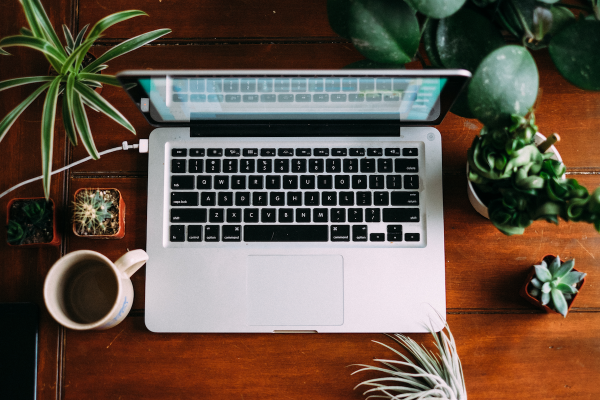 “It is health that is real wealth and not pieces of gold and silver.”
“It is health that is real wealth and not pieces of gold and silver.”
(Mahatma Gandhi)
Today’s guest post from William Hartfield is about the avalanche of information, misinformation, advice, and recommendations that make ‘being healthy’ confusing, and seem like a never-ending uphill battle. A few years ago William saw a photo of himself… and he was shocked. His hairline was rapidly receding, his forehead appeared to be getting larger and he looked about 10 years older than he was. Unwilling to just let things happen, he jumped into action and put his biomedical degree to use in researching all current scientific literature on hair loss and ways to prevent it. He soon discovered holistic dietary and lifestyle changes to help beat hair loss, and improve his overall health and wellbeing naturally. William runs the website Hair Loss Revolution to share what he’s learned with the whole world.
Will writes:
Does Being Healthy Have to be Exhausting?
If you subscribe to websites or follow Facebook profiles and Twitter feeds on health and wellness these days, chances are you often find yourself overwhelmed. Keeping up with which ingredients are harmful, which acronyms to look for on plastics, how important organics are, whether or not GMOs will give you giant tumors and if the chemicals in your tap water will make your hair fall out is positively exhausting, and generates a lot of anxiety.
But the fact is, being healthy doesn’t have to be so much effort. Much of the information being plastered all over magazine covers, touted on shareable media and even tracked via wearable technology still reflects the common sense information we’ve always had.
Everything Old is New Again
Today, there’s a big movement in favor of plant-based diets that focus on organically and sustainably raised fruits, vegetables, beans and other foods. Basically it’s all about going back to our roots and adopting a diet and lifestyle in line with the natural world around us.
The difference is that today there are medical studies funded to examine everything from the environmental factors that lead to Alzheimer’s to the fact that diets are only effective when you actually stick to them. With so many clinical studies and research articles being published every month, it’s no wonder people are starting to develop anxiety problems due to an overload of information. There’s even a study to confirm that information overload causes a condition that’s now the focus of its own area of study – information anxiety. Thanks, science!
Balancing Information, Health and Understanding
So what’s the trick to getting the facts you need without becoming overwhelmed by the tidal wave of information that gets spread on television, through social media and in popular entertainment? Here are my tips to help you:
Follow 3 Simple Rules – If in doubt, go with three simple rules that will rarely do you wrong. These are, where food is concerned, if you have the choice, choose fresh over preserved, raw over processed and organic over non-organic options if you can reasonably afford it. A lot of other aspects of healthy living take care of themselves when you follow these three rules.
Don’t Fall for Hype – Studies and articles often make headlines simply because websites and magazines need to create content. So when a study comes out with claims about sex, weight or a common condition such as depression, media will often run with it as something to talk about. A one-off study on the efficacy of goji berries on health may be interesting and stir up some hype for a product, but it’s not always actually noteworthy.
Understand the Scientific Process – One of the best reasons to avoid getting caught up in the kind of hype discussed above is because the scientific process is designed to take fantastic findings and try to find something wrong with them.
By understanding how the scientific process works, people can become better educated on actual dangers to their health as well as being able to spot studies, methodology and reporting that falls short of the high bar set by science.
Go to the Trusted Sources – Once you have a good grounding in knowing what to look for, you’ll find the websites, magazines, journals and other reputable sources related to your chosen area of interest. Whether your focus is on the best nutrition, the smartest ways to shape up or the best methods to improve mental health, there are impartial organizations that offer quality advice, like HappyLiving.com.
Improving your health doesn’t have to be an endlessly exhausting workout for the body and mind. Instead of focusing on quantity, I recommend focus on the quality of the information you choose to take in.
Your turn
We’d love to hear from you. How does getting and staying healthy exhaust you? How do you intend to improve things? Leave a comment for William here.
Image via Death to the Stock Photo | This post may contain affiliate links, which means if you click and then purchase we will receive a small commission (at no additional cost to you). Thank you for reading & supporting Happy Living!

